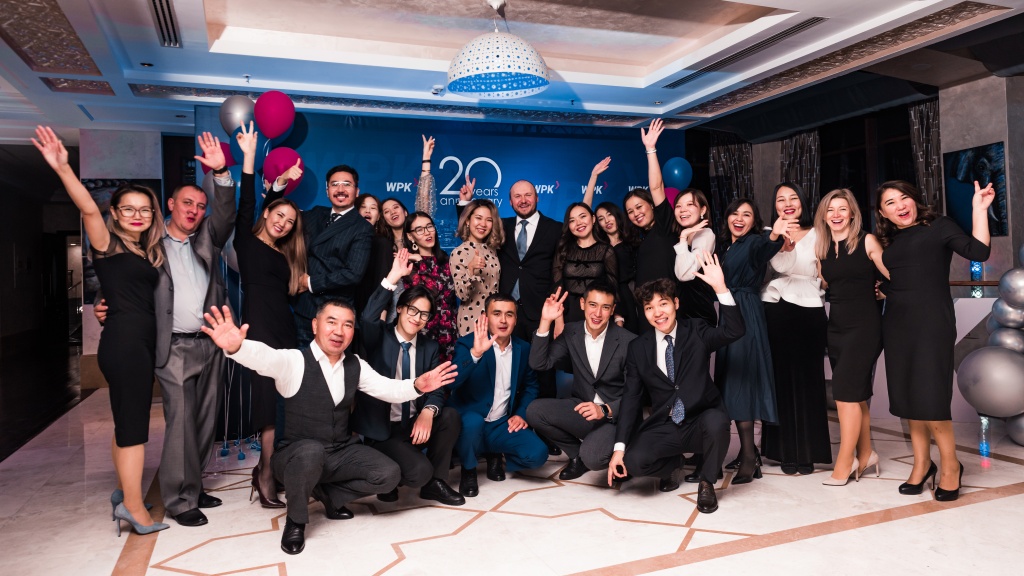Hiring foreign professionals in Kazakhstan requires careful planning and compliance with local laws. This article, written by our new contributor Aliya Uderbayeva, outlines the key steps and legal considerations for companies looking to bring in international talent.
Aliya Uderbayeva, Director at WPK, linkedin
About myself and the company
Kazakhstan’s rise as a hub for international business has led to a growing demand for foreign specialists across industries — from tech startups to energy giants. I’ve seen firsthand how this demand intersects with a complex web of migration rules, labor regulations, and bureaucratic hurdles. Even the most experienced companies can be caught off guard by how nuanced the process is.
When I think back to how I started almost 15 years ago — as a junior assistant in Atyrau — it’s incredible how much has changed, both in the migration system and in my own journey. In those early years, we were processing huge volumes of work permits. I remember times when we secured permits for about 100 foreign specialists in just one week. The stakes were high, and we had to work closely with government authorities to clearly justify why foreign expertise was needed over local candidates.
That hands-on experience gave me a front-row seat to the evolution of Kazakhstan’s migration policy — and that knowledge still shapes the way I work today. When I relocated to Astana, I had to build everything from scratch: new teams, new relationships with ministries and embassies, and a new understanding of more complex regulatory environments. Every stage required adaptability and creative problem-solving. Nothing about this work is routine.
At WPK Group, the approach we take is deeply informed by these years of experience and by our understanding of Kazakhstan’s unique business climate. In my view, our success comes down to three essential pillars: experience, close cooperation with government institutions, and trusted relationships with our clients.
But WPK isn’t just about submitting paperwork. We see ourselves as a bridge between foreign businesses and state authorities. We've initiated legal platforms where companies can voice their concerns directly to migration officials — and in some cases, this has led to real regulatory improvements. We’ve even partnered with government agencies to help digitize migration services, which has made the process smoother for everyone involved.
And our clients value this hands-on, proactive approach. When leading international companies place their trust in us to handle the relocation and legalization of their foreign specialists, it not only validates our work — it inspires other businesses to follow suit.
But what does the journey of hiring foreign talent actually look like in practice? From my experience, there are four crucial steps companies must take early on.
How to hire a foreigner in Kazakhstan
1. Verify Candidate Qualifications
The first step we always discuss with clients is the qualification of the foreign specialist.
Kazakhstan’s work permit system is strict. For managerial positions — 1st and 2nd category, a higher education degree plus at least five years of relevant experience is often required. Overlooking these criteria can lead to costly delays — or outright denials.
2. Understand Local Content Quotas
Kazakhstan mandates a majority of local employees: at least 70% for senior roles and 90% for specialists and engineers. While some exemptions exist for small businesses or new branches, knowing where your company stands is essential before submitting documents.
3. Clarify the Labor Relationship
Is the foreign specialist employed locally, or seconded from abroad? This distinction dictates which work permit applies.
Intra-corporate transfers have their own rules and paperwork. Getting this wrong can lead to legal headaches.
4. Assess Work Permit and Visa Processing Timeline
Timing is another piece of the puzzle. On average, the full process — from submitting documents to a foreign employee’s first day — takes 1,5-2 months. Work permit approval consumes the bulk of that time, typically 1 to 1,5 months, followed by visa issuance, which adds about 2 weeks.
With perfect preparation, the process can be as short as one month. But companies should always build in buffers for unforeseen delays.

About visas
When it comes to visas, Kazakhstan offers a range of options tailored to different scenarios.
Work Visas — C3 Category. The standard work visa for foreign nationals employed in Kazakhstan. It is usually issued for a period of one to three years and typically requires prior approval of a work permit.
It is important to note that citizens of EAEU member states, such as Russia, Belarus, Kyrgyzstan, and Armenia, do not require a work permit or a visa C3 to work in Kazakhstan. Instead they are eligible to stay as a worker based on a Temporary Residence Permit, which can be issued up to 1 year
Business Visas — B1, B2, B3 Categories. For short-term visits without work permits — ideal for conferences, technical experts on brief projects, or executives attending meetings.
Investor Visa — A5 Category. For companies with confirmed investments. This visa lasts up to five years and exempts holders from work permits and local content quotas.
A recent innovation worth noting is the program Digital Nomad Visa and Digital Nomad Residency, launched in 2024, which allows IT specialists — to live in Kazakhstan for up to a year without the usual work permit constraints.
This was a very timely move. During COVID, we had many inquiries from remote workers who didn’t fit into any visa category. Now, digital nomads — particularly in IT — can legally live in Kazakhstan for a year, and even apply for long-term residency.
Today, digital nomads have the opportunity to live in Kazakhstan for up to one year on a dedicated visa — and later extend their stay by applying for a digital nomad residency permit. This status opens the door to purchasing property, enrolling children in local schools, and enjoying a more flexible, integrated lifestyle.
It’s a forward-thinking move that puts Kazakhstan on the map for global talent seeking a dynamic base in Central Asia.